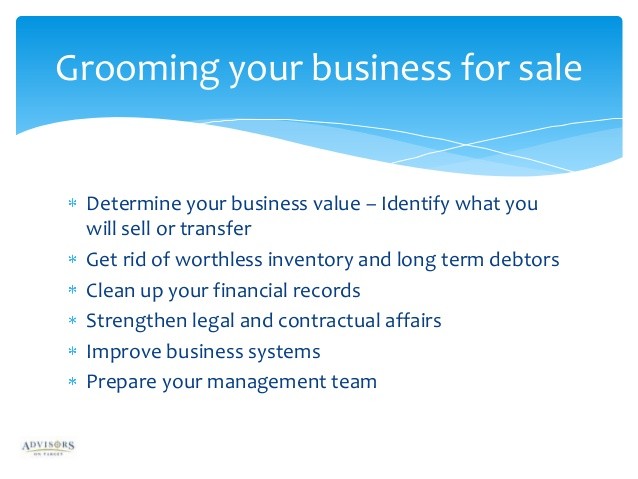Determine the Value of Your Business Before You Sell
Post on: 17 Июль, 2015 No Comment

Figure out how much your business is worth before you set the sale’s price. Here’s how.
Before you sell your business. determine how much it’s worth. There are several different methods to value your business and set a price.
Keep in mind that if you price your business too high, you’ll scare off potential buyers. Price it too low and you’ll leave money on the table. But don’t expect the perfect sales price — you won’t know how much it is really worth until the day a buyer writes you a check.
Here’s how to come up with a sales price.
Valuation Methods
Even though setting the ideal price is next to impossible, you can arrive at a reasonable asking price, or a price range. Some approaches to pricing a business are:
- Income valuation approach. This analyzes the business’s revenue, assuming that the buyer is looking at a business as just one more type of investment competing with stocks, bonds, real estate, and so on. The question then becomes What kind of return can the buyer expect?
- Asset-based approach. This totals up the value of all of the assets, starting with tangible ones such a furniture and including intangible ones, such as trademarks or copyrights. This approach usually uses your assets’ resale value, not how much it would cost to replace them.
- Industry formulas and rules of thumb. There are formulas that may be used in your industry, such as three times your earnings averaged over a three-year period, or two times the book value of your company. These guides can give you a rough idea of the current market, but not much more.
- Comparables. The ideal approach is usually to see what other enterprises similar to yours have sold for — but it works only if such sales have occurred recently. Because small businesses tend to be unique, you’re unlikely to find a recently sold business whose location, sales volume, number of employees, and other factors are the same as yours.
Professional Help
Professional resources you can use in pricing your business include accountants, brokers, appraisers, and educational seminars. Accountants will help you organize and evaluate your financial data. Brokers, besides knowing about potential buyers, may also be able to track down elusive information about sales of comparable businesses. Appraisers can help you set a price for the business or just value your business’s assets.
Naming Your Price
Depending on your business, the low end of your price range will probably be little more than the liquidation value of the assets. The high end is likely to be based on income projections and on what an enthusiastic buyer might pay for the right to receive (and hopefully increase) those earnings in the future. If you have a healthy business — especially one with a well-established customer base and positive reputation — you’ll probably pick an initial asking price towards the top of your range and then, if necessary, be prepared to back off a bit in negotiating.
Several factors that don’t involve the business’s income, assets, or comparables also go into pricing a business. These include:
- terms of payment
- type of buyer
- market demand, and
- your personal needs.
You’ll need to take into account the general economic climate as well as trends in your industry — positive or negative. And, of course, if you have to sell quickly, you may need to settle for less.
Need More Help?
Nolo’s book, The Complete Guide to Selling a Business . by Fred S. Steingold (Nolo), guides you through the entire selling process, from setting and negotiating a price, to preparing a sales agreement and going to the closing.














